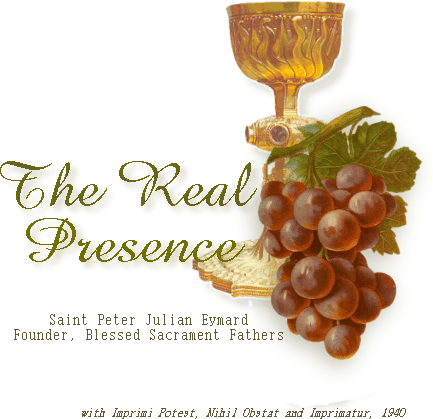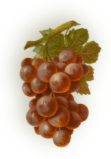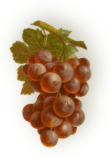 THE TESTAMENT OF JESUS CHRIST Hic calix novum testamentum est in meo sanguine. This chalice is the new testament in My Blood. (1 Cor. xi. 25.) HOLY Thursday, the eve of our Savior's death, the day on which He instituted the adorable Sacrament of the Eucharist! That was the most beautiful day of our Lord's life. It was the greatest day of His love and tenderness. Jesus was on the point of p~rpetuating His Presence in our midst. His love on the Cross was boundless, it is true, bute there would be an end to His sufferings, and Good Friday was to last only one day. Holy Thursday would endure till the end of time. Jesus made Himself the Sacrament of Himself forever. I ON THAT day, then, our Lord remembered that He was a father, and He wanted to make His will; He was about to die. What a solemn act this is in a family! It is, so to speak, the last act of one's life, and one that extends beyond the grave. A father gives what he has. He cannot give himself because he does not belong to himself. He bequeathes something to eacb of his children as well as to his friends. He gives what he prizes the most. But our Lord would give His very Self! He had neither riches, nor property, nor a home. He had not even where to lay His head. Those who expect temporal goods from Him will get nothing. His Cross, three nails, His crown of thorns, these are the only material things He had to bequeath. Ah! If our Lord were to give away estates, how many would be good Christians! All would be His disciples! But no, He has nothing to give here below, not even glory; the humiliations of the Passion disposed of that. And, yet, our Lord wanted to make a will: But a will of what? Of His very Self! He was God and Man. As God, He was master of His sacred humanity. He gave it to us, and with it all that He was. He really and truly gave it to us; it was not a loan, but a gift. He immobilized Himself, so to say, and took on the outward semblance of a thing so that we might in very truth possess Him. He became bread; His Body, Blood, Soul and Divinity took the place of the substance of the bread which was offered up. We do not see Him, but we have Him. Our Lord Jesus Christ is our inheritance. He wants to give Himself to everybody, but not everybody wants Him. There are some who would want Him, but they will not submit to the conditions of good and pure living which He has laid down; and their malice has the power to render God's bequest null and void. II SEE how marvelously inventive is our Lord's love! He alone devised this work of His love. Who else could have foreseen it, or even dared think of it! . . . It was beyond the Angels themselves. Our Lord devised it all by Himself. "You need bread? I shall be your bread." And He died happy, because He left us bread, and what bread! His happiness was that of a father who has worked all his life with one purpose in mind: that his children might have bread after he was gone. What more could our Lord give us? In this testament of love our Lord included everything, all His graces and even His glory. We can say to our Heavenly Father: "Give me the graces I need, and I will pay Thee with Jesus Eucharistic Who belongs to me. He is my property; I can dispose of Him. All Thy graces, Thy glory itself, O Heavenly Father, are not worth as much as He." If we commit sins, we have a Victim to offer up I for them; Jesus belongs to us. "Father, I offer Him to Thee; Thou wilt forgive me through Jesus and for Jesus. He has certainly suffered enough and atoned enough." No matter what grace God may grant us, He remains always our debtor. Jesus Christ, our treasure, is worth more than all the graces, more than Heaven itself. With Saint Louis in their hands, the Saracens held the whole of France for ransom; with Jesus in our possession, we already possess Heaven. Let us then make practical use of that thought by "investing" in Jesus Christ, as it were. Most people-----and how numerous they are-----bury Him within themselves or leave Him in His shroud. They do not make use of Him to win heaven for themselves and kingdoms for God. Let us make use of Jesus when praying and atoning. Let us pay with Jesus; His worth is greater than our debt. III BUT how has this inheritance come down to us through more than eighteen centuries? Jesus gave it in trust to guardians who have administered it, and kept it intact in order to hand it over to us when we should come of age. These guardians were the Apostles, and among them their undying Head. The Apostles handed it over to priests, who bring it to us; they open the will for us and give us the Host which our Lord foresaw at the Last Supper would be consecrated for us. Yes, there is neither past nor present nor future for Jesus Christ. This good Father knew us all at the Last Supper. He consecrated, as it were in thought and in desire, all our Hosts; He loved us personally eighteen centuries before we were born. Yes, we were present at the Last Supper, and Jesus stored up for us not one Host but a hundred, a thousand, one for every day of our life. Do we realize that? Jesus wanted to love us superabundantly. Our Hosts are ready; let us not lose a single one of them. Our Lord's only purpose in coming to us is to do us good; sball we force Him into idleness? No, never! Make Him produce results through Himself. Negotiamini. Make Him yield profit. Do not allow any Hosts to be fruitless. How good our Savior is! The Last Supper lasted about three hours; it was the Passion of His love. That bread was so expensive! People say, "Bread is dear"; but what is that in comparison with the price of the heavenly bread, the bread of life? Let us therefore eat this bread; it is ours. Our Lord bought it for us and paid for it Himself. He gives it to us; we have but to take it. What an honor! What love!  Contact Us Contact Us HOME---------------THE HOLY EUCHARIST DIRECTORY-----------------------BLESSED SACRAMENT VISITS www.catholictradition.org/Eucharist/real-presence6.htm |